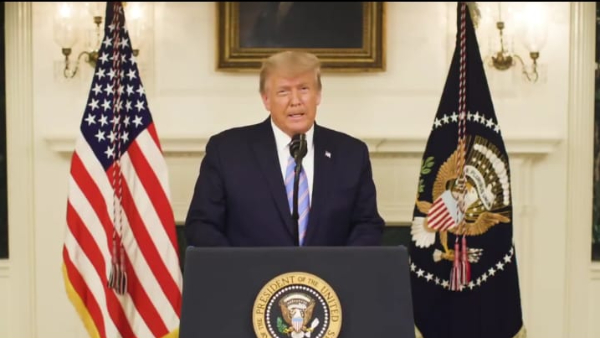U.S. President Donald Trump has expressed a willingness to permit Nvidia to sell a downgraded version of its top-tier AI chip to China. During a press conference, Trump mentioned the possibility of reaching an agreement with Nvidia if they could reduce the performance of their Blackwell system.
“It’s possible I’d make a deal” on a “somewhat enhanced – in a negative way – Blackwell” processor, Trump said. “In other words, take 30% to 50% off of it.”

Nvidia’s Strategic Moves
Last month, Nvidia CEO Jensen Huang, who has been advocating for access to the Chinese market after facing restrictions, expressed his desire to sell more advanced chips to China. Huang has argued that selling U.S. chips in China would ensure Chinese firms rely on them for AI development.
Trump indicated plans to meet with Huang regarding the Blackwell chip. “On the Blackwell, I think he [Huang] is coming to see me again about that,” Trump stated, emphasizing that the Blackwell system is currently unmatched globally.
Export Restrictions and Negotiations
The semiconductor industry has seen significant activity following an agreement between Nvidia and AMD with the U.S. government. They agreed to give 15% of their revenue from chip sales to China in return for export licenses. Initially, Trump sought a 20% share, but negotiations led by Huang reduced it to 15%.
If approved for export, these downgraded Blackwell chips could have substantial implications for future dealings, according to Paul Triolo from DGA-Albright Stonebridge Group. He noted that the strategy aims to make China reliant on less advanced technology.
China’s Response and Alternatives
Washington’s export policies have evolved over recent years. In 2022, Nvidia was prohibited from exporting its A100 and H100 chips to China-essential components for training large AI models. Further restrictions were imposed in 2023 on additional Nvidia semiconductors.
Chinese companies have stockpiled these chips and continue using them legally for AI model training, as Triolo confirmed. However, it’s uncertain what capabilities a downgraded Blackwell system might offer for advanced model training.
Huawei’s Ascend Series
Meanwhile, Huawei is advancing its Ascend series processors as potential alternatives to Nvidia’s offerings. Triolo mentioned that Huawei is at a transitional stage as they deplete earlier acquired Nvidia GPUs while hoping their new Ascend processors will eventually match Nvidia’s capabilities.
“We are in sort of a transition point of running out of those stockpiles of earlier acquired Nvidia GPUs and hoping that Huawei’s new Ascend series of processors will be capable of replacing those but they are not quite capable of doing that yet,” Triolo said.
The anticipation is that Huawei might introduce an updated version of its 910 processors next year, which could compete more effectively with Nvidia’s products.
Best Mobiles in India






























